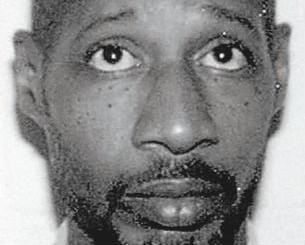No.
90-5193
DAWUD MAJID MU'MIN,
PETITIONER v. VIRGINIA
[May
30, 1991]
Justice
O'Connor, concurring.
No one doubts
that Dawud Majid Mu'Min's brutal murder of Gladys
Nopwasky attracted extensive media coverage. For
days on end, the case made headlines because it
involved a macabre act of senseless violence and
because it added fuel to an already heated political
controversy about the wisdom of inmate work-release
programs. But the question we decide today is not
whether the jurors who ultimately convicted Mu'Min
had previously read or heard anything about the
case; everyone agrees that eight of them had. Nor is
the question whether jurors who read that Mu'Min had
confessed to the murder should have been
disqualified as a matter of law. See post, at
8-9, 11-12. This claim is squarely foreclosed by
Patton v. Yount, 467 U.S. 1025 (1984),
where we upheld a trial court's decision to seat
jurors who had read about the case notwithstanding
that the defendant's written confessions, which were
not admissible at trial, were widely reported in the
press. See id., at 1029; id., at 1047
(Stevens, J., dissenting). The only question
before us is whether the trial court erred by
crediting the assurances of eight jurors that they
could put aside what they had read or heard and
render a fair verdict based on the evidence.
The dissent
insists that the trial judge could not have assessed
realistically the jurors' credibility without first
identifying the information to which each individual
juror had been exposed. I disagree. It is true that
the trial judge did not know precisely what each
individual juror had read about the case. He was
undeniably aware, however, of the full range of
information that had been reported. This is because
Mu'Min submitted to the court, in support of a
motion for a change of venue, 47 newspaper articles
relating to the murder. Ante, at 2. The trial
judge was thus aware, long before voir dire,
of all of the allegedly prejudicial information to
which prospective jurors might have been exposed.
With this
information in mind, the trial judge had to
determine whether or not to believe the jurors'
assurances that they would be able to enter the jury
box with an open mind. To this end, he questioned
prospective jurors repeatedly about whether exposure
to pretrial publicity had impaired their ability to
be impartial. One juror who equivocated was excused
by the trial court on its own motion. Ante,
at 4-5. As to the 12 jurors ultimately selected, the
trial judge determined that their assurances of
impartiality were credible. As we observed in
Patton v. Yount, credibility
determinations of this kind are entitled to "special
deference," 467 U. S., at 1038, and will be reversed
only for "manifest error." Id., at 1031-1032.
The dissent is
correct to point out that the trial judge could have
done more. He could have decided, in his discretion,
to ask each juror to recount what he or she
remembered reading about the case. The fact remains,
however, that the trial judge himself was familiar
with the potentially prejudicial publicity to which
the jurors might have been exposed. Hearing
individual jurors repeat what the judge already knew
might still have been helpful: a particular juror's
tone of voice or demeanor might have suggested to
the trial judge that the juror had formed an opinion
about the case and should therefore be excused. I
cannot conclude, however, that "content" questions
are so indispensable that it violates the Sixth
Amendment for a trial court to evaluate a juror's
credibility instead by reference to the full range
of potentially prejudicial information that has been
reported. Accordingly, I join the Court's opinion.

